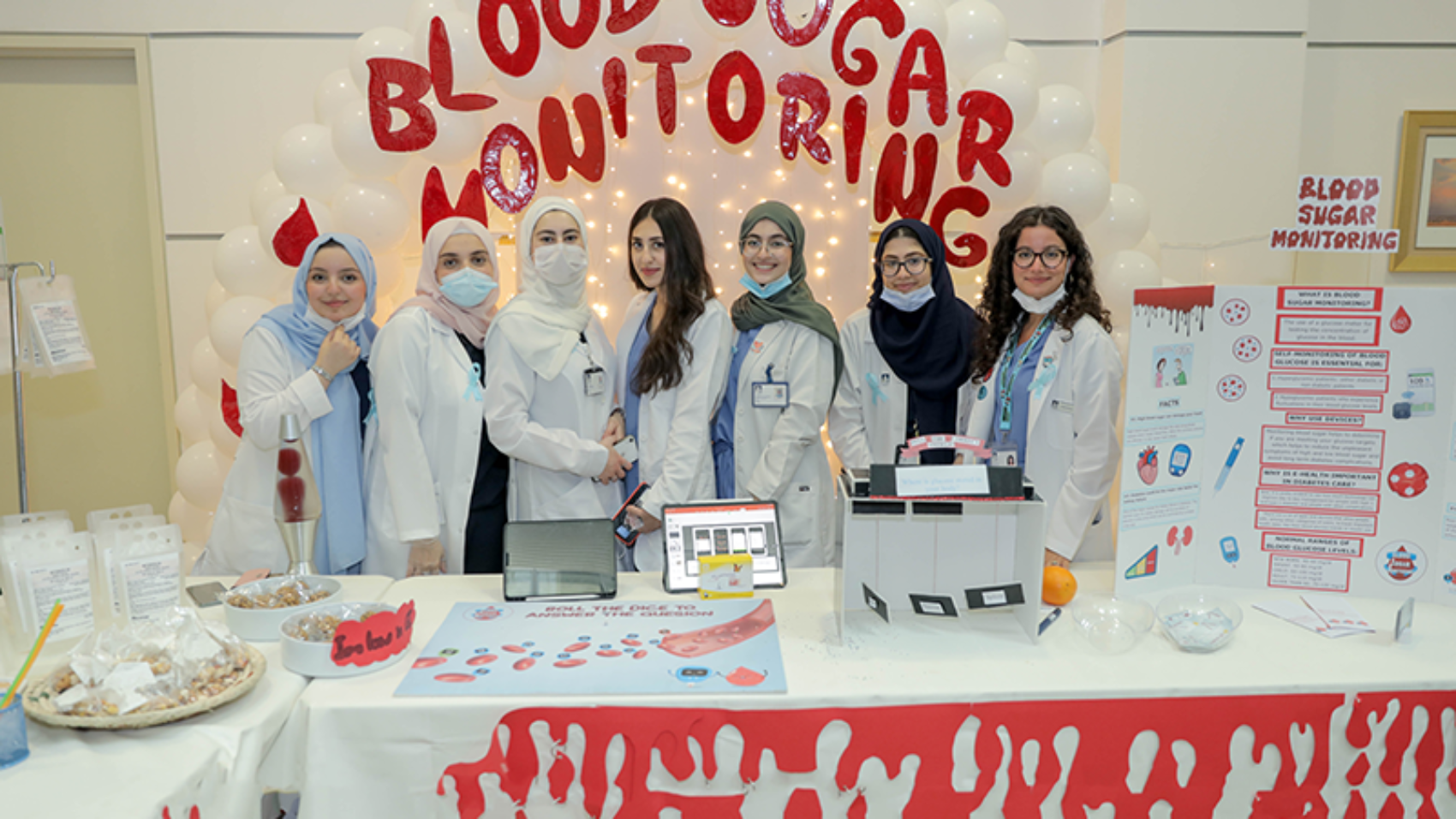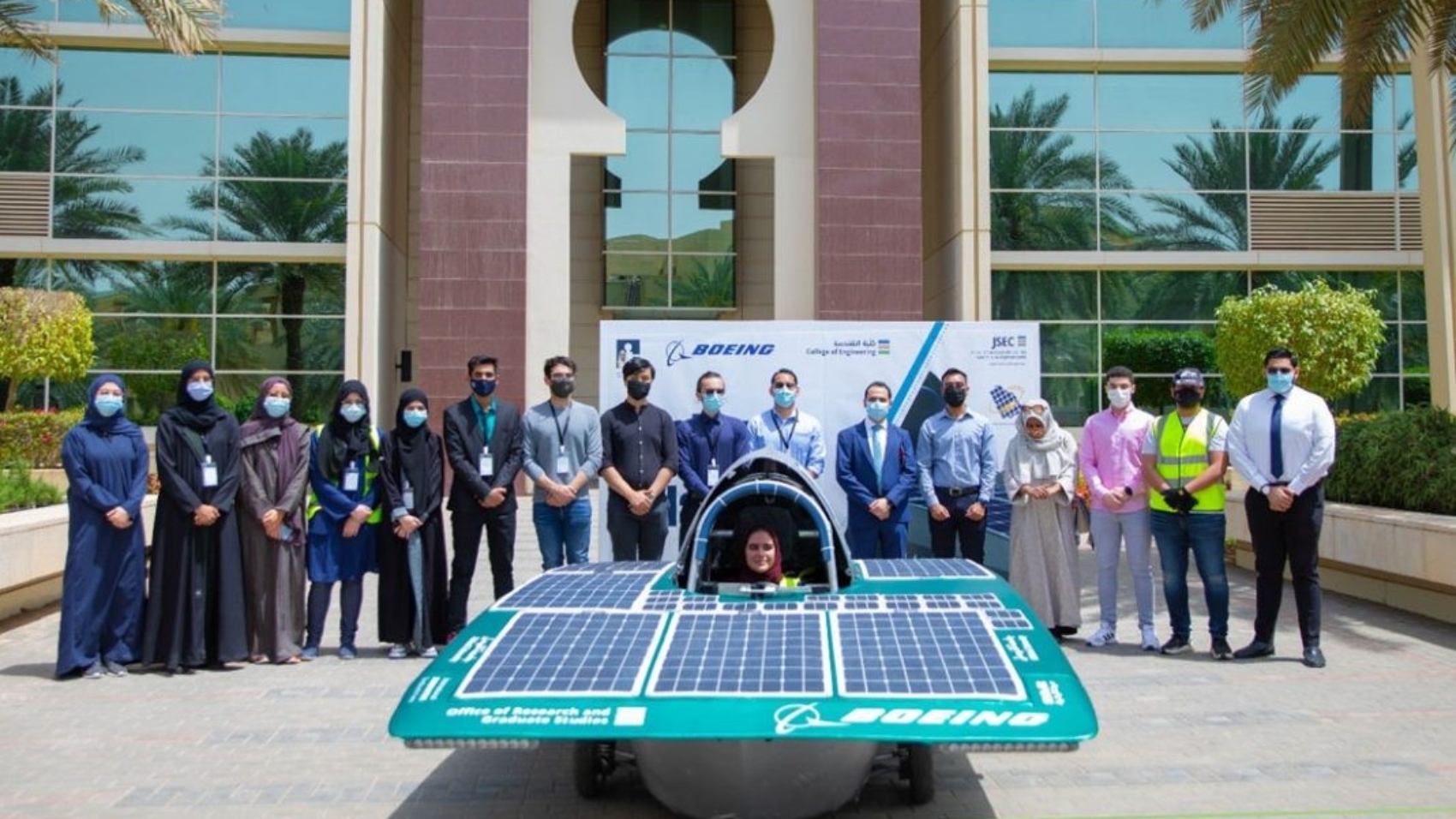Inspired by the surge in technological development in the fight against COVID-19 and its repercussions, Alfaisal University chose E-health as a topic for this year’s 9th Health Promotion Project: “E-Health: The New Norm, The New Competency”.
More than 350 first-year medical students participated in the event discussing over 30 topics in digital health and the newly developed health technologies that emerged during the COVID-19 pandemic highlighting the inevitable need of using these technologies as they are increasingly becoming a major source for health services.
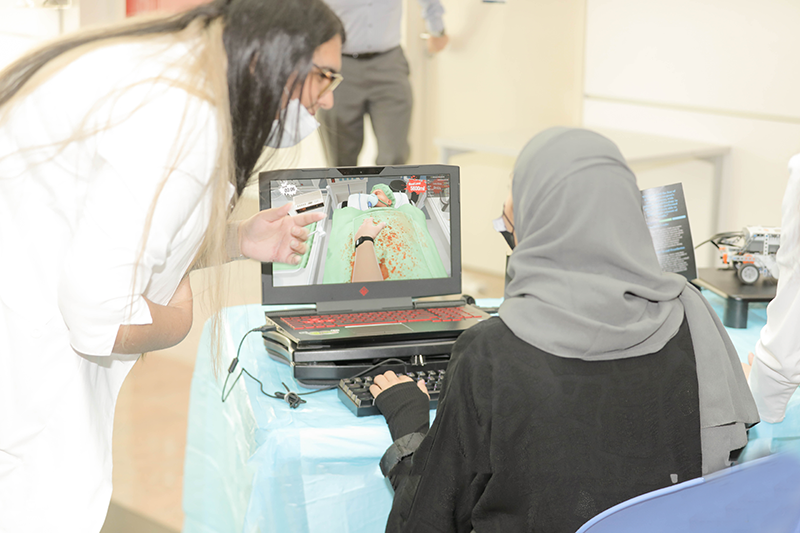
Each booth exhibited an aspect of digital health, including the innovative pre-Covid & post-Covid applications, their limitations, implementations, anticipated impact on the community and health system, and their future.
The topics varied between diagnostics, therapeutic, and patient experience.
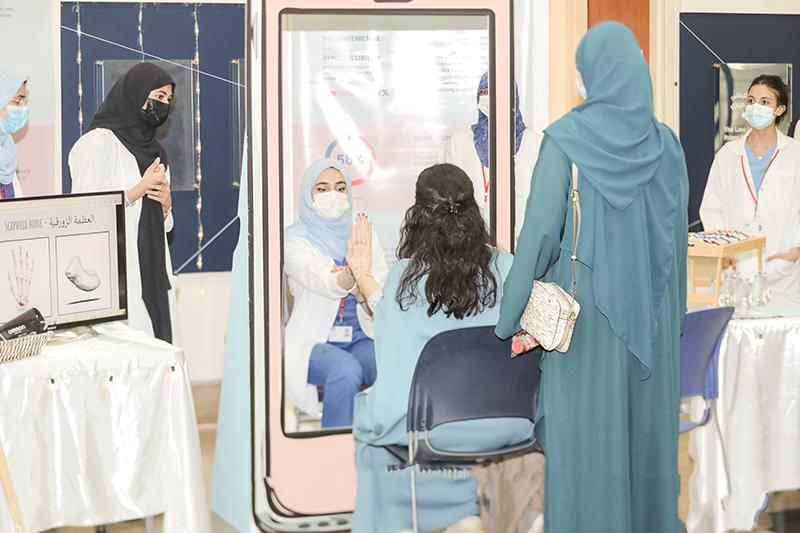
The idea of this yearly event started when students used to visit the schools that they graduated from to deliver presentations about topics that were relevant to youth and school students.
Consequently, and in order to ensure broader dissemination of knowledge, Alfaisal University decided to host the event on campus and invite different schools to join.
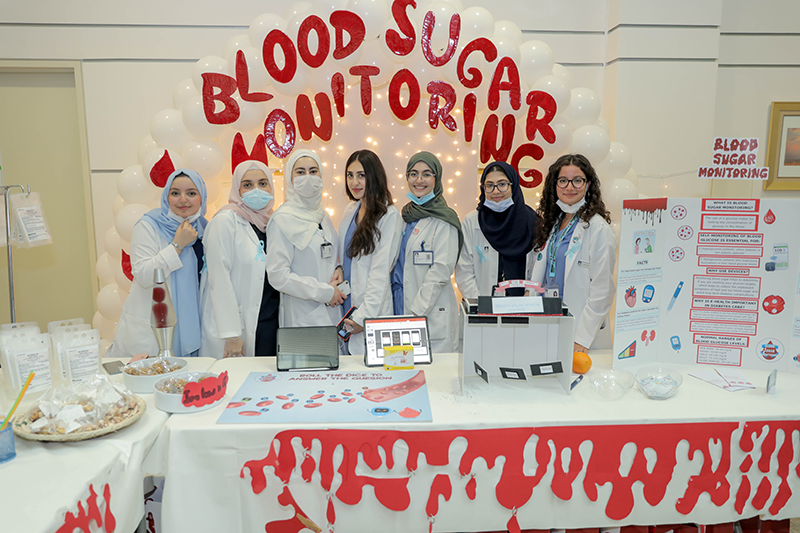
More than 1000 guests attended this year’s event including Alfaisal University’s students and faculty and participating students’ friends and family, school students from all over Riyadh, and 15 judges from significant institutions including: The Saudi Commission for Health Specialties, King Faisal Foundation, King Abdullah University for Science and Technology, King Faisal Specialist Hospital, Dar Al Hikmah University, and “Waey” Association for Community Health.
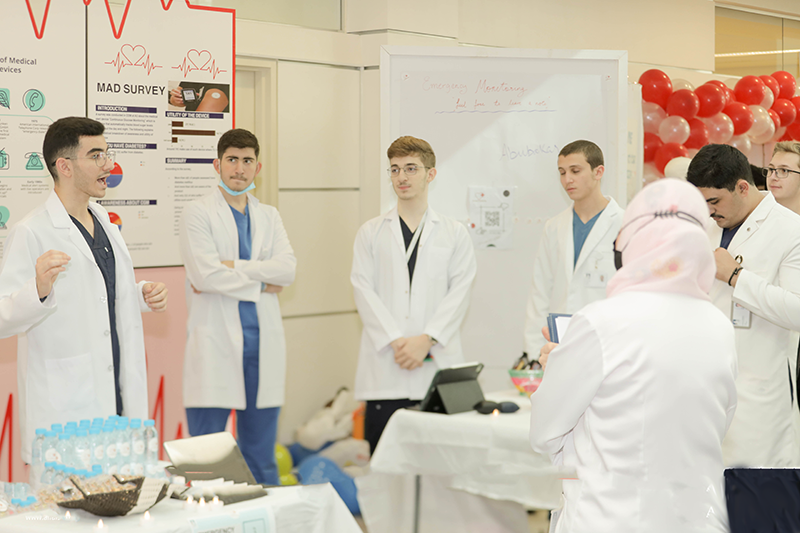
Students’ exhibited projects were evaluated against different criteria by judges whose expertise ranged from clinical medicine to public health to artificial intelligence to project management.
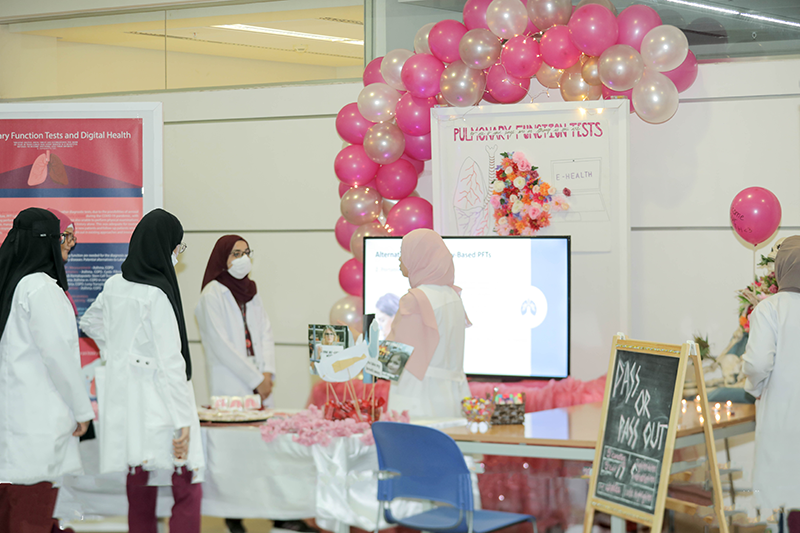
On December 8, the winning groups were announced. “Surgical treatment” group ranked 1st. Two groups ranked 2nd: the “Emergency treatment” and the “Physical examination”. The 3rd place was shared by three groups: the “Blood sugar monitoring”, the “Emergency monitoring”, and the “Pulmonary function tests”.
